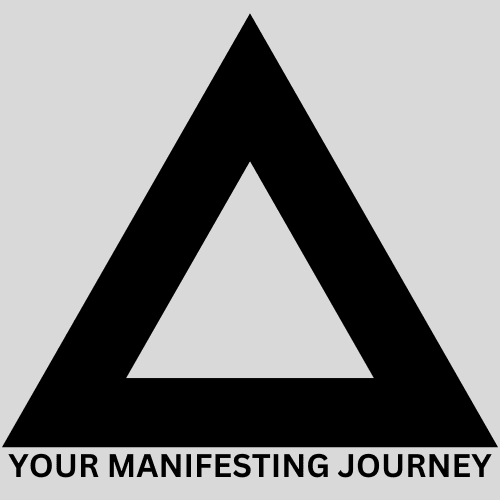You’ve probably heard phrases like “I’ll sleep when I’m dead” or “Rise and grind.” But in 2025, more people are realizing that success without sanity is a slow-motion disaster. The world is waking up to the truth: mental health isn’t a luxury — it’s survival.
Table of Contents
- Why Mental Health Is the Real Wealth in 2025? What is the Guide to Mental Health and Self-Care?
- The Self-Care Revolution: More Than Bubble Baths
- A Day in the Life of Someone Who Has Mastered Self-Care
- Rewiring the Brain: Daily Rituals That Actually Work
- Stress Relief Techniques That Are Backed by Science
- The New Era of Therapy: Digital Healing in Your Pocket
- The Connection Between Nutrition, Sleep & Emotional Resilience
- Designing Your Personalized Self-Care System
- Real-Life Stories: From Burnout to Balance
- FAQs: Answering What Everyone’s Asking
- Conclusion: A Better You Starts Now
1. Why Mental Health Is the Real Wealth in 2025? What is the Guide to Mental Health & Self-Care?
Let’s be real: We’ve glamorized hustle for far too long.
You’ve probably heard phrases like “I’ll sleep when I’m dead” or “Rise and grind.” But in 2025, more people are realizing that success without sanity is a slow-motion disaster. The world is waking up to the truth: mental health isn’t a luxury — it’s survival.
A study by the World Health Organization revealed that over 970 million people worldwide are struggling with mental health conditions. That’s almost 1 in 8 people. And with rising uncertainty, digital overload, and economic pressure, those numbers are only climbing.
So the question isn’t, “Do I need self-care?” The real question is: “How long can I afford to ignore it?”
2. The Self-Care Revolution: More Than Bubble Baths
Somewhere along the way, self-care got marketed as scented candles and spa days. But the real self-care revolution is messy, uncomfortable, and wildly transformative.
Self-care in 2025 is boundary-setting. It’s saying “no” to clients who drain you. It’s going to therapy, journaling through your triggers, and healing generational trauma.
It’s waking up early to meditate, even when your bed is warm and the world feels cold.
The new wave of self-care isn’t escapism. It’s radical self-responsibility.

3. A Day in the Life of Someone Who Has Mastered Self-Care
Meet Maya. She’s a 34-year-old digital marketer in New York. A few years ago, she was burnt out, anxious, and using Instagram as a crutch for her loneliness.
Today? She runs a thriving remote business, journals every morning, takes weekly therapy sessions, and ends her day with gratitude.
Her secret? Small, consistent habits.
- 6:30 AM: She wakes up and drinks lemon water.
- 7:00 AM: Meditation and 15 minutes of journaling.
- 8:00 AM: A protein-rich breakfast and no screens until 9.
- 12:00 PM: Midday walk with no phone.
- 5:00 PM: Yoga and wind-down rituals.
- 9:30 PM: Digital detox and reading before sleep.
These aren’t glamorous Instagram moments. But they’re the bricks of her emotional empire.
4. Rewiring the Brain: Daily Rituals That Actually Work
Your brain is not a fixed machine. It’s like clay — moldable, rewritable. This is called neuroplasticity, and it’s the reason habits change lives.
According to James Clear, author of Atomic Habits, “You do not rise to the level of your goals. You fall to the level of your systems.”
Here are three systems that rewire your mental health:
- Gratitude Journaling: Repeated studies (UC Davis, 2020) show that writing 3 things you’re grateful for daily increases optimism and reduces depression.
- Meditation: 10 minutes a day of focused breathing can shrink the amygdala (fear center) and grow the prefrontal cortex (decision-making).
- Affirmations: Speaking positively about yourself isn’t fluff — it literally creates new neural pathways.
5. Stress Relief Techniques That Are Backed by Science
Forget what the wellness influencers say — science gives us a clear blueprint for stress relief.
- Box Breathing (Navy SEAL technique): Inhale for 4 seconds, hold for 4, exhale for 4, hold for 4. Repeat. This triggers your parasympathetic nervous system.
- Forest Bathing: A Japanese practice called Shinrin-Yoku, which means simply spending time in nature. Reduces cortisol by up to 20%.
- Cold Showers: Increase dopamine by 250% and improve resilience. Wim Hof didn’t invent this — but he popularized it for a reason.
6. The New Era of Therapy: Digital Healing in Your Pocket
In 2025, therapy is no longer confined to couches or office walls. It’s on your phone, your wrist, and even in your earbuds.
Apps like BetterHelp, Talkspace, and MindDoc have democratized access to licensed therapists. Meanwhile, AI-based journaling apps like Reflectly help track emotional patterns in real-time.
Want something more immersive? Virtual Reality exposure therapy is now used for trauma recovery, and chatbots like Wysa offer CBT-style support 24/7.
Mental health has gone mobile — and that means more people are healing on their own terms.
7. The Connection Between Nutrition, Sleep & Emotional Resilience
Let’s not pretend we can out-meditate poor nutrition or sleep.
- Nutrition: Your gut is your second brain. 95% of your serotonin (the happiness hormone) is produced in your gut. Eat whole foods, fiber, and fermented options like kimchi and yogurt.
- Sleep: Even a single night of poor sleep affects emotional regulation. Prioritize 7-9 hours and follow a wind-down routine.
- Hydration: Dehydration = fatigue, irritability, and brain fog. Aim for half your body weight in ounces per day.
These aren’t just health tips — they’re emotional insurance policies.
8. Designing Your Personalized Self-Care System
Self-care is not one-size-fits-all. What calms one person might trigger another. That’s why you need a custom blueprint.
Ask yourself:
- What gives me energy?
- What drains me?
- What are my early signs of burnout?
Create a Self-Care Matrix:
- Daily: Journaling, hydration, mindfulness.
- Weekly: Therapy, nature walk, social time.
- Monthly: Digital detox, goal review, massage.
Print this. Stick it on your wall. Live by it.

9. Real-Life Stories: From Burnout to Balance
Jenna was a corporate lawyer in Chicago. 80-hour weeks. Panic attacks in bathroom stalls. Her wake-up call? A hospital visit from stress-induced heart palpitations.
She quit. Took a six-month sabbatical. Traveled. Healed. Today, she runs a blog helping women navigate career transitions with mental health intact.
Her motto? “If you don’t schedule wellness, you will be forced to schedule illness.”
Let that sink in.
10. FAQs: Answering What Everyone’s Asking
1. What is the most important aspect of self-care for mental health in 2025?
The most crucial aspect is consistency. It’s not about one-off efforts, but building rituals that support your mental health daily — sleep, mindfulness, hydration, and emotional check-ins. Technology makes it easier, but discipline makes it sustainable.
2. Can self-care really improve anxiety and depression?
Absolutely. While professional help is important, daily self-care like meditation, exercise, journaling, and proper nutrition have been shown in countless studies to reduce symptoms of anxiety and depression significantly.
3. How do I build a self-care routine that works with a busy schedule?
Use habit-stacking: attach new habits to existing ones. For example, meditate for 3 minutes after brushing your teeth or journal right after your morning coffee. Keep it simple. Even 5–10 minutes a day makes a difference.
4. Are self-care apps and digital therapy really effective?
Yes — especially when used consistently. Apps like BetterHelp and MindDoc provide accessible, affordable mental health support. Studies show that digital CBT can be nearly as effective as face-to-face therapy for mild to moderate issues.
5. What role does journaling play in mental health?
Journaling is a powerful emotional detox tool. It helps you clarify your thoughts, process trauma, and track progress. Techniques like gratitude journaling and cognitive reframing build resilience over time.
6. How do I know if I’m doing self-care right?
You’ll notice signs like improved mood, less irritability, more focus, and better sleep. If your rituals feel nourishing rather than performative or stressful, you’re on the right track.
7. Can poor diet and sleep really affect mental health that much?
Yes, profoundly. Your gut produces serotonin. Lack of sleep affects decision-making and emotional stability. No self-care routine can compensate for poor sleep or nutrition.
8. What’s the best morning routine for mental health?
A high-performance mental health routine includes: hydration, 5–10 mins of meditation, journaling or affirmations, sunlight exposure, and a nutrient-rich breakfast. It sets the tone for clarity and focus.
9. How can I make self-care feel less like a chore? Make it enjoyable. Use scented candles during meditation, walk in a beautiful park, turn off your phone during dinner. Treat self-care as an act of love, not a checklist.
You may love to read
| Manifest Now | Idil Ahmed | A practical guide to shifting energy, thoughts, and scripting to attract abundance. |
| Atomic Habits | James Clear | While not directly about manifestation, this book helps build habits that align with scripting and success. |
| Super Attractor | Gabrielle Bernstein | Teaches how to raise your vibration, script effectively, and manifest effortlessly. |
11. Conclusion: A Better You Starts Now
The truth is, mental health isn’t just about feeling better — it’s about living better.
You deserve more than survival. You deserve vibrance, clarity, connection, and peace.
Whether you’re just starting your self-care journey or leveling up your practices for 2025, remember this: consistency beats intensity. It’s not the one big retreat — it’s the small, daily decisions that create a lifetime of freedom.
🌱 Start with one habit. One breath. One journal entry.
Then stack the wins.
What’s the one self-care ritual you’ll commit to this week?
👇 Drop it in the comments and inspire someone else to begin.

